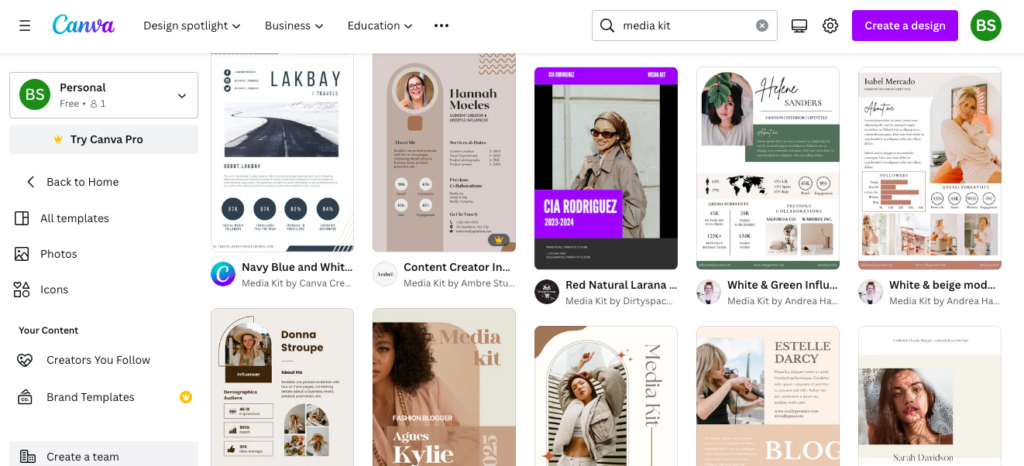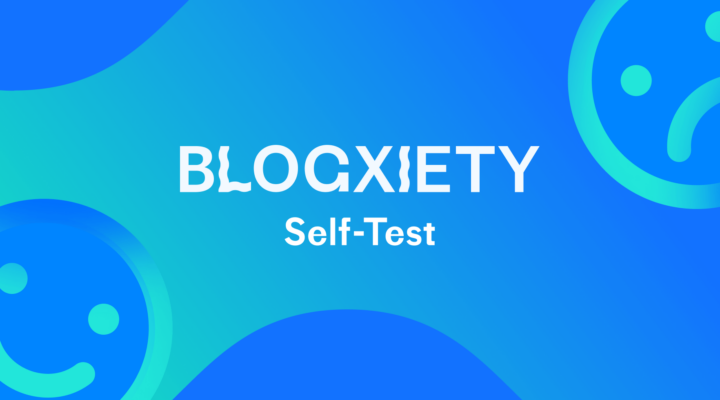Understanding Brand Pay Standards
In order to negotiate fair compensation from a brand partnership, it’s important to understand the current market rates. Determining how much to charge for a campaign can be challenging, especially if you’re just getting started as an influencer!
What to Consider When Determining Rates
Here are a few things to consider when determining rates:
- Time — How long will it take to complete the content creation from start to finish? For example, you’ll likely charge less for a package with one Instagram post than for a package with a 3,000-word blog post, two Instagram reels, and one TikTok video because the second package will take longer to create.
- Cost — How much money will it cost to create the content? For example, if you need to purchase plane tickets, hire a photographer, or purchase props or other items to make the content, you’ll want to factor this into your rate.
- Exclusivity — Is the brand asking you not to work with competitor brands for a predetermined amount of time? If so, you’ll be missing out on other paid partnerships, so you’ll need to charge a “pretty penny” to make this campaign worthwhile.
- Usage Rights — Is the brand asking to use your content after a predetermined time period (one month, three months, one year, etc.)? If so, you’ll want to charge more than a standard contract.
How to Decide What to Charge
When it comes to industry pay standards, there is not a “one size fits all” rate for brand collaborations. No two influencers will get paid the same rate for the same contract terms — and that is primarily because of negotiation.
Although brand partnerships will fluctuate between each influencer and brand, it can be helpful to understand what your peers are making from brand deals before heading into a negotiation. Here are some places where you can talk to other travel influencers about setting rates for travel brand partnerships:
- Facebook Groups — Facebook groups with other travel bloggers and creators can be a great place to ask questions about rates. Some popular groups for travel bloggers, content creators, and freelancers include Digital Nomad Wannabe, Freelancing Females, Women Travel Bloggers, and Women Travel Creators.
- Pay Platforms — Transparent pay platforms for influencers, like FYPM, can give you access to compensation details, deliverables, contract terms, platform and follower counts, and influencer experience with 10,000+ reviews for 5,000+ brands.
- Online Articles — Online articles listing how much travel bloggers, creators, and influencers make on Instagram, TikTok, etc., with a similar following, can help you understand average influencer pay rates. These articles from EmbedSocial, HootSuite, and Demand Sage are excellent places to start.

How to Negotiate Brand Partnerships?
When negotiating a travel brand partnership, utilize the following steps and tips to secure a mutually beneficial deal for both brands — your company and the company you’re working with.
Adhere to Your Niche
Before negotiating a partnership with a brand, ensuring the brand is a good fit for your niche is essential. Promoting a company that doesn’t align with your brand messaging or values will result in subpar campaign results, low social media engagement, and distrust between you and your audience.
For example, a blogger that shares content about hiking, camping, and budget traveling around Canada would not benefit from a brand partnership with a luxury five-star hotel in London. Instead, they would be better off negotiating partnerships with brands that sell camping gear, group hiking trips, or budget accommodations in Canada.
Ask for Compensation
Sometimes, when a brand reaches out to you for a collaboration, they won’t mention payment in the first email. However, this doesn’t mean the brand doesn’t have a budget — it just means you need to ask first.
Simply send an email back that reads, “Thank you for reaching out. I think this campaign would be a great fit for my audience. Do you have a budget for this campaign?” After the brand replies with confirmation there is a budget, you can proceed with the following steps.
If the brand does not have a budget, you’ll need to determine if you’d still like to work with the brand in exchange for a complimentary hotel stay, comped meal, or free product. Remember, content creation is a lot of work (as you already know!), so make sure the free experience is worth the work you’ll need to put in to create the campaign. Sometimes, doing a few campaigns in exchange for free stays, products, etc. is a good way to build your portfolio if you’re just getting started with influencer marketing.

Determine Deliverables
Once you’ve determined that the brand has a budget, you can move forward with setting deliverables for the campaign. This will be a combination of the deliverables the brand is looking for and what you can offer as a travel blogger or content creator.
For example, imagine a brand is looking for a few sponsored Instagram posts, but you have a website with 100,000 monthly readers in addition to a small, engaged Instagram following. It’s worth asking the brand if they’d like to add a blog post to the list of deliverables. By “throwing in” a blog post, you’ll be able to charge significantly more when it’s time to negotiate payment.
Set Rates
Once you’ve agreed on deliverables for the partnership with the brand, you should have a better idea about the amount of work, time, and supplies needed to complete the campaign. The deliverables — and the other factors to consider when determining rates that we listed earlier — should help when choosing a rate to charge the brand.
Remember, the more deliverables included in the campaign, the higher the price should be. And charge more for platforms with higher (and highly engaged) followings. For example, if you have 50,000 followers on Instagram and only 5,000 followers on TikTok, you’ll be able to charge more for posts, reels, and stories on Instagram than videos on TikTok. More engagement results in more exposure, which is what brands are looking for when working with influencers.
There’s no exact science to setting rates for brand partnerships. The key is to find an amount to charge that makes the time spent on the work seem “worth it” to you while also staying within the brand’s budget for the project. Most brands will counteroffer, so it’s wise to quote a little higher initially. This way, when you return with another offer and the brand accepts, you’ll receive close to what you were hoping to earn from the campaign.
Showcase Value
When negotiating collaborations with brands, it’s imperative to showcase creative ideas and make it clear what you can offer the brand that’s unique from other bloggers or influencers.
Here are some ways you can showcase your value to a brand when you’re in the negotiation stage of securing a brand partnership:
- Provide images or blog posts from previous campaigns to give the brand a taste of the style, feel, and overall “vibe” they can expect from their campaign.
- Offer analytics and results from a previous campaign (likes, comments, link clicks, impressions, etc.) to give brands an idea of how your audience will react to their brand.
- Showcase your credibility by sharing other brands you’ve worked with that are similar to the brand you’re negotiating with. For example, a boutique hotel will be more likely to work with a blogger or influencer who they know has successfully worked with boutique hotels in the past.
A great way to showcase value is by creating a media kit. Media kits display information about your brand, audience, account analytics, and past partnerships, and you can create one for free on Canva. Usually, bloggers, creators, and influencers will send over a media kit after initially connecting with a brand before determining deliverables.

Create a Long-Term Relationship
One of the best “win-win” scenarios for a brand partnership is to negotiate a long-term collaboration. Chances are, if your followers see a post about something one time, it will not “stop their scroll.” However, if you continue posting about the same product or service each week over a few months, it will grab your followers’ attention and will be more likely to result in a sale for the brand.
Long-term collaborations are valuable to the brand, but they are also helpful to you! You’ll make more money over an extended period of time, and during the collaboration, if the pay is high enough, you won’t have to worry about working with other brands.
Use Multiple Platforms
As a travel blogger or creator who works with brands, using multiple platforms is a valuable way to diversify yourself.
For example, a blogger who runs a successful blog and has a few social media accounts with an engaged following, like Instagram, TikTok, and YouTube, will usually make more per campaign than a creator who is only on Instagram. This is because the former creator can offer multiple deliverables, including blog posts, video reviews, reels, and photos. In contrast, the latter creator can only provide the brand with posts, reels, and stories on Instagram.
A company wants its brand talked about in various places to reach different audiences, so creating content for multiple platforms adds value to the campaign. Because of this, you’ll be able to charge more for the collaboration or partnership.
To learn more about how you can choose the platforms where you’ll publish your content, watch this video from Travelpayouts Academy.
Start Earning Income With Brand Partnerships as a Travel Blogger
Once you feel confident about negotiating brand partnerships as a travel blogger — it’s time to put your skills to the test. Reach out to a brand you would like to work with, share your media kit and unique value, list the deliverables you’re willing to provide, and put those negotiation skills to work. You’ve got this!
Brand partnerships are just one way to make an income as a travel blogger or content creator. Becoming an affiliate partner for top travel brands, like Viator, GetYourGuide, and Booking.com, is another spectacular way to use your influence to earn income.
Join the Travelpayouts Partnership Platform for access to dozens of top-rated travel brands, and start making money on the flights, accommodations, tours, and activities travelers purchase through your affiliate links.
Join the Travelpayouts partnership platform
Streamline your travel blog's financial success.
Join today



